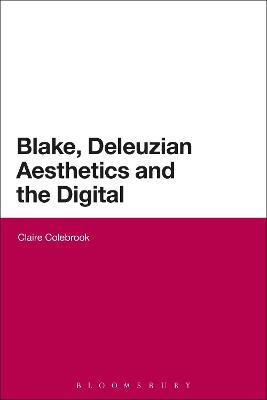Continuum Literary Studies
2 total works
Milton, Evil and Literary History addresses the ways in which we read literary history according to quite specific images of growth, development, progression, flourishing and succession. Goodness has always been aligned with a life of expansion, creation, production and fruition, while evil is associated with the inert, non-relational, static and stagnant. These associations have also underpinned a distinction between good and evil notions of capitalism, where good exchange enables agents to enhance their living potential and is contrasted with the evils of a capitalist system that circulates without any reference to life or spirit. Such images of a ghostly and technical economy divorced from animating origin are both central to Milton's theology and poetry and to the theories of literary history through which Milton is read. Regarded as a radical precursor to Romanticism, Milton's poetry supposedly requires the release of his radical spiritual content from the fetters of received orthodoxy. This literary and historical imagery of releasing the radical spirit of a text from the dead weight of received tradition is, this book argues, the dominant doxa of historicism and one which a counter-reading of Milton ought to question.
Drawing on recent theories of digital media and on the materiality of words and images, this fascinating study makes three original claims about the work of William Blake.
First, Blake offers a critique of digital media. His poetry and method of illuminated printing is directed towards uncovering an analogical language. Second, Blake's work can be read as a performative. Finally, Blake's work is at one and the same time immanent and transcendent, aiming to return all forms of divinity and the sacred to the human imagination, stressing that 'all deities reside in the human breast,' but it also stresses that the human has powers or potentials that transcend experience and judgement: deities reside in the human breast.
These three claims are explored through the concept of incarnation: the incarnation of ideas in words and images, the incarnation of words in material books and their copies, the incarnation of human actions and events in bodies, and the incarnation of spirit in matter.
First, Blake offers a critique of digital media. His poetry and method of illuminated printing is directed towards uncovering an analogical language. Second, Blake's work can be read as a performative. Finally, Blake's work is at one and the same time immanent and transcendent, aiming to return all forms of divinity and the sacred to the human imagination, stressing that 'all deities reside in the human breast,' but it also stresses that the human has powers or potentials that transcend experience and judgement: deities reside in the human breast.
These three claims are explored through the concept of incarnation: the incarnation of ideas in words and images, the incarnation of words in material books and their copies, the incarnation of human actions and events in bodies, and the incarnation of spirit in matter.

